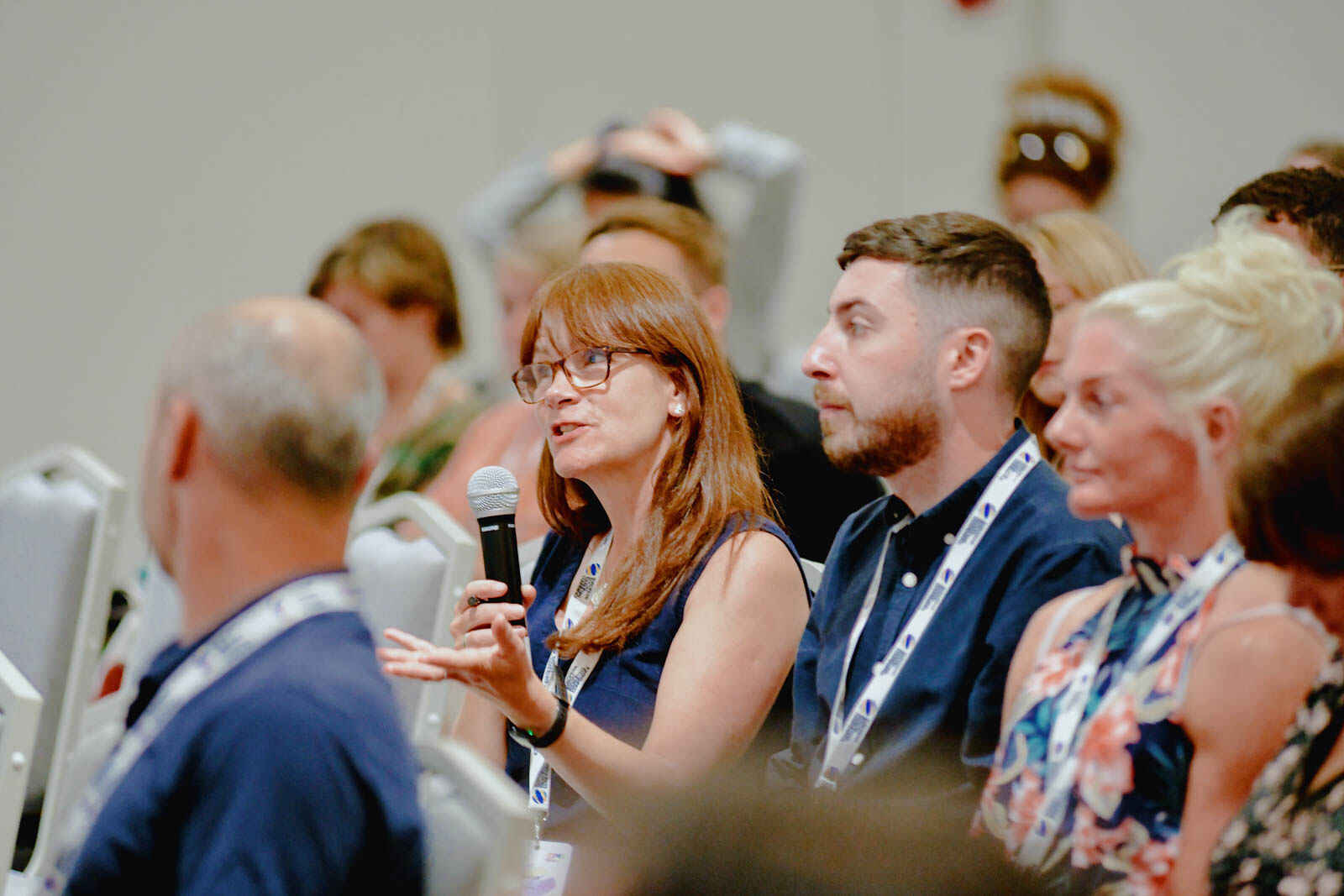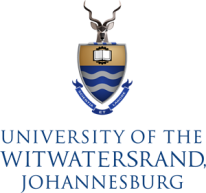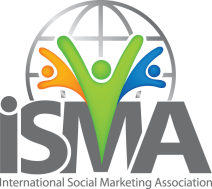
An event to bring together anyone working to encourage and enable positive health, social and environmental change.
PROGRAMME
MONDAY 24 APRIL > PRE-CONFERENCE WORKSHOPS
Conference attendees have the opportunity to take part in a range of a training workshop ahead of the event lead by social marketing experts. This session is exclusively available to conference attendees and can be selected during your registration.
Presentation Skills
Full Day Workshop - 9.30 - 17.00
Workshop leader: Prof Jeff French
This session will provide a masterclass of tips and advice designed to help anyone who is new to presenting research or case studies. This workshop will provide a great opportunity for anyone who is new to giving public presentations or anyone who is looking to improve their personal presentation skills at conferences or in the workplace.
MONDAY 24 APRIL > WELCOME RECEPTION
All conference delegates are invited to attend the conference welcome reception. Come down to the New CLM Building and enjoy the complimentary evening of networking and refreshments, guests will also be invited to collect their programme and delegate badge early to miss the morning rush the following day.
Drinks and Canapes will be served for all guests from 5.30 pm.
TUESDAY 25 APRIL > CONFERENCE DAY ONE
MORNING SESSIONS
8.00 - 9.00 > Registration
9.00 - 10.00 > OPENING PLENARY
WELCOME to the 1st African Social Marketing Association Conference & Keynotes
Session Chair: Helen Duh, University of the Witwatersrand
Welcome from AfSMA
Debbie Ellis, University of KwaZulu-Natal, Acting president AfSMA
The Future is Fusion
Jeff French, iSMA
Keynote Speaker
Babafunke Fagbemi - CCSI
"Build. Brand. Brag. ..Thriving in a Complex Environment."
Are you struggling to start up an SBC organisation, secure funding or work with governments?
This could be challenging, but SBC expert from Nigeria, Babafunke Fagbemi shares insights on the journey of CCSI from inception to first grant, branding, survival and lessons learnt over the years to navigate complex landscapes and deliver impact. Look out for the Build. Brand. Brag. Session!
10.00 - 10.45 > POSTER PRESENTATIONS, NETWORKING & COFFEE
We will be encouraging all delegates to take this time to speak to poster authors about their work and vote for the best poster project at AfSMAC.
10.45 - 12.20 > MORNING BREAKOUT SESSIONS
During this breakout session we will host seven parallel rooms of exciting conference sessions. Continue reading this page to find out more about the full range of accepted work as this continues to be updated as and when authors confirm their attendance.
AFTERNOON SESSIONS
1.30 - 2.30 > AFTERNOON PLENARY PANEL
Social Marketing and Food Security in Southern Africa: Challenges and Possible solutions
Chair: Lucy Chabala Kawesha, University of KwaZulu-Natal
Panellists:
- Andy Du Plessis, Food Forward SA, South Africa
- Sam Tembo, World Vision, Zambia
- Dr. Moffat Chawala, Copperbelt University, Zambia
Aim: Food security is embedded in various environmental and regional objectives. Pinstrup-Andersen (2009), defines Food security is the country’s ability to offer its citizens access to affordable quality nutritious food. The United Nation’s second Sustainable Development Goal (SDG2) “Zero Hunger” focuses on ending hunger, achieving food security, improving nutrition and promoting sustainable agriculture. In the African Union’s Agenda 2063 “Aspiration one (1) of the African Union (AU) Agenda 2063 envisions a prosperous Africa based on inclusive growth and sustainable development with goal three (3) highlighting the importance of healthy and well-nourished citizens” (AfricanUnion).
2022 was also the African Union’s Year of Nutrition, which aimed to strengthen resilience in nutrition and food security on the continent, “strengthening Agro-food systems, health and social protection systems”(AfricanUnion, 2022, p. 1). In the same year 2022, the Food Security Information Network (FSIN) reported that there has been an alarming rise in populations in the highest phases of acute food insecurity” with more than 205.1 million people, mostly in Africa, facing food insecurity FSIN_and_Global_Network_Against_Food_Crises (2022, p. 8) .
The World Bank also adds that “As the impacts of climate change continue to intensify and global shocks upend business as usual, Sub-Saharan Africa is feeling the brunt of what has been coined “the perfect storm” – a food, fuel, and fertilizer crisis exacerbated by the war in Ukraine, scarring effects from the COVID-19 pandemic, soaring inflation, rising debt, and extreme weather.” (WorldBank, 2022, p. 1). Social Marketing finds itself at the heart of this noble global movement.
2.30 - 5.15 > AFTERNOON BREAKOUT SESSIONS
During this breakout session we will host seven parallel rooms of exciting conference sessions. Continue reading this page to find out more about the full range of accepted work as this continues to be updated as and when authors confirm their attendance.
This breakout will also include the special session
Designing with the Audience at the Center: Innovative Approaches and In-sights to Improve Social Marketing Outcomes
Chair: Prof. Debbie Ellis, University of KwaZulu-Natal, South Africa
Panellists:
- Prof. Gael O’Sullivan, Georgetown University, USA
- Leah Taub, Premise, USA
- Male Herbert, Corus International, South Sudan
Aim: Social marketing as a discipline needs to be more connected to the latest thinking in areas such as: user-centred design, mobile data platforms on consumer behaviour, social accountability approaches, and qualitative research methods that yield authentic and unexpected consumer insights. The Global Health sector continues to serve as a thought leader in understanding the most effective ways to integrate relevant behavioural science practices into social marketing programs. This Africa-focused panel will share several use cases on topics such as malaria prevention in Zimbabwe, COVID-19 testing across several Sub-Saharan countries, and community engagement as a key element of social accountability to improve resilience in South Sudan. We will demonstrate how insights from these social change efforts and technology platforms can strengthen traditional social marketing approaches. Given that we are unlikely to achieve the Sustainable Development Goals by 2030, and our world will only continue to pose more complex, cross-sectoral challenges, this panel will offer guidance and learnings to help researchers and practitioners consider how to expand our social marketing toolkit.
Talking to people, not at them
Chair: Jamie Arkin, AI-fluence
Panel:
- Zonja Penzhorn
- Mark Kaigwa
- Yvonne Diogo
Overview: The focus of this session will be sharing stories and experiences throughout their careers and encouraging the public to rethink how we design campaigns, not just by integrating HCD principals, but by adopting private sector principles around advertising and marketing and applying them to social impact causes.
5.15 - 5.45 > END OF DAY PLENARY
TOWN HALL SESSION
From products, to policies, practices and pandemics: Harnessing insights for advancing social marketing in health and development in Africa
Moderator: Prof. Adebayo Fayoyin, School Wits of Public Heath, South Africa
Aim: To expand the current application of social marketing in achieving the multidimensional health and development agenda in the Continent, it is essential to further interrogate the opportunities and constraints limiting its application among professionals and stakeholders. Such insights are critical to amplifying the role of social marketing in accelerating the attainment of the Sustainable Development Goals (SDGs) 2030 and the Africa Union Agenda 2063.
The Town Hall provides a forum for engaging participants in an interactive conversation on the lessons and approaches essential for expanding the deployment of social marketing across a broad range of issues and topics in more social responsible sustainable ways. It will leverage on the expansive experience and expertise of participants from diverse sectors and assist in bridging approaches, especially between the public and private sectors.
WEDNESDAY 26 APRIL > CONFERENCE DAY TWO
MORNING SESSIONS
9.00 - 10.00 > MORNING PLENARY
Keynote Speakers
Ndinatsei Mumbengegwi – Population Services International (PSI)
The theory behind social and behaviour change communication requires practitioners to really understand the ecosystem that the communities that are intended to adopt a certain behaviour change objective engage with on a daily basis. This process is often complex to gather all the required insights to draft an effective strategy. To achieve this, an appropriate level of capacity strengthening is required for the longevity and sustainability of specific programs. This presentation will be structured to unpack through case studies from projects executed the key learnings that facilitated successful uptake of behaviour change initiatives, challenges faced, learnings and the things that probably keep ‘us’ SBCC professionals up at night as we strive towards improving outcomes.
Cal Bruns – Matchboxology
Who says?" Can we improve social marketing's impact by improving our agency?
With the bulk of social development funding coming from overseas, our work as social marketing professionals is often reactive to priorities not set by ourselves.
How might we, as local social marketers with the unique ability to connect with our own variety of local audiences, play a more important role in identifying and motivating for the social marketing initiatives most needed and wanted by our African communities.
10.15 - 11.25 > MORNING BREAKOUT SESSIONS
During this breakout session we will host seven parallel rooms of exciting conference sessions. Continue reading this page to find out more about the full range of accepted work as this continues to be updated as and when authors confirm their attendance.
This breakout will also include the following special session:
Corporate social marketing for effective behaviour change: Lessons from the Global Smart Drinking Goals
Chair: Neo Ligaraba, University of the Witwatersrand, South Africa
Panel:
- Catalina Garcia, AB In Bev Foundation
- Paul Issock, University of the Witwatersrand
- Patricia Gurviez, AgroParisTech
- Zoleka Lisa, South African Breweries
Aim: This session aims to shed light on the effectiveness of corporate social marketing in promoting behaviour change that benefit society. The discussion is around the role that commercial firms can play as actors in the midstream social marketing to bring about effective behaviour change. The focus will therefore be on the impact of corporate social marketing (CSM) initiatives in persuading consumers to perform desired prosocial behaviour.
The session draws lessons from the Global Smart Drinking Goals (GSDG), a CSM initiative spearheaded by AB InBev to reduce harmful use of alcohol. Through the AB InBev Foundation (ABIF) was created in 2017 as an independent non-profit organization to help advance the GSDG and provide scientific rigor to the behaviour change process, the firms has been at the forefront of social marketing initiative geared towards reducing harmful drinking globally by identifying effective, evidence-based programs and policies for public-private partnerships to advance positive social and behaviour change.
The ABIF has successfully piloted various interventions aimed at reduction of harmful alcohol use and through rigorous testing identified impactful interventions for scale up across different geographies. The interventions being scaled up include screening and brief intervention, responsible beverage service and road safety measures. Social marketing is a critical pillar in supporting the uptake of these interventions around the world.
12.00 - 12.30 > MID-MORNING PLENARY
Keynote Speaker
Prof. Doug Evans – The George Washington University
Digital Media for Behavior Change: Integrating Online and Community-based Programs
Digital media for behavior change is an emerging field of study that involves campaigns and programs aimed at changing specific behaviors in a population using one or more digital platforms as a delivery channel, including research aimed at assessing effectiveness of such programs. This presentation explores the field, briefly presents use cases, and explores strategies to integrate digital and community-based programs, which recent evidence reviews show are most likely to succeed.
AFTERNOON SESSIONS
12.30 - 1.30 > SPECIAL SESSION
Please be aware, that during our lunch break, our sponsors Agency For All will be holding an hour long special session:
Agency for All: Advancing and redefining Agency on the African continent
There are significant gaps in our understanding of agency and its impact on SBC programs. Advancing understanding of agency and its impact on SBC can enhance the effectiveness of social marketing interventions, including local ownership. The USAID Agency for All project is excited to share and invite conference attendees’ contributions.
1.30 - 2.30 > SPECIAL SESSION AFTERNOON PLENARY PANEL
Changing behaviours around corruption in South Africa: Experiences & Challenges
Chair: Janine Rauch, Enhancing Accountability Technical Assistance Facility (TAF), South Africa; Ben Harris, Proof Africa, South Africa; Sphe Nzama, Proof Africa, South Africa
Panel includes members from:
- Centre for Analytics & Behaviour Change
- Corruption Watch South Africa
- Transparency & Accountability Program
Aim: The objective of this session is to reflect on a variety of efforts by anti-corruption advocates and activists effect changes in knowledge, attitudes and behaviours related to corruption in South Africa. In addition, recent evidence about disinformation and manipulation on SA social media will enable a deeper understanding of the socio-political context within which anti-corruption work is taking place.
2.40 - 3.45 > AFTERNOON BREAKOUT SESSIONS
During this breakout session we will host seven parallel rooms of exciting conference sessions.
This breakout will also include the following special session:
Breaking The Mold: Unleashing the Power Of Community Leadership and Social Entrepeneurship
Panel:
-
Daudi Ochieng, Social Marketing and Behavior Change Consultant to the Government of Mozambique through the National Directorate for Water Supply and Sanitation (DNAAS) with support of the World Bank Group.
-
Richard Burns, Social Marketing Consultant specializing in strategic design and implementation of SBC programs. 20 years’ experience managing, USAID, UKAID and World Bank projects, across 8 sub-Saharan countries across multiple thematic areas, including Water and Sanitation hygiene (WASH) projects in Kenya, Tanzania and Zambia.
-
Nuno Maia, Social Marketing Strategist I Social Entrepreneur I passionate by BOP Markets, BCC, C4D, Research, working on designing a Social Marketing for demand generation of feacal sludge management services in peri-urban areas in a pilot intervention over 9.000 Households.
Aim: The aim of this session is to share some examples of using Communities leaders as social change agents, some past examples of sanitation projects and have a conversation about the involvement of community leaders as social entrepreneurs as a sustainable work approach, without diminishing the collective responsibility as authority with voluntary propose. Also to call for discussion on other innovative and accelerator approaches so that donors and governments should evaluate, while analyzing the intervention cost versus impact and sustainability.
4.30 - 5.00 > CLOSING PLENARY & BEST PAPER PRESENTATIONS
Join the conference organising committee, speakers and other participants and they host an open discussion and feedback session for sum-up the event. Put your views forward for the next event, share what you've learned or what opportunities have been missed.
This session will also play host the conference award presentations where the best submissions from each conference category will be celebrated.
Please be aware, immediately following the close of the conference, there will be a special session running:
5.00 - 6.00 >SPECIAL SESSION
Advancing the Field of Social Accountability: Setting the Stage for a Learning Agenda
CONFIRMED POSTERS
Poster Number 1
Submission No. 3
Title: Promoting equality in education: using social behavior change (SBC) to tackle disability stigma, increasing enrolment and retention in schools in Chinsali Zambia
Authors: Michael Odong, Sightsavers HQ, Uganda; Veronica Stapleton, Sightsavers HQ, London; Francis Kalusa, Sightsavers, Zambia; Glenda Mulenga, Sightsavers, Zambia; Austin Tolokesi, Sightsavers, Zambia
The Tusambilile Chapamo project in Zambia aims to influence inclusive behaviors and create a supportive environment in the community/household society and school to boost access to the education continuum for children and youth with disabilities (CYWD).
Track: Promoting equity and equality
Poster Number 2
Submission No. 4
Title: Nurture Early for Optimal Nutrition (NEON) Protocol for a pilot feasibility cluster Randomised Controlled Trial: Community facilitator led participatory learning and action (PLA) women’s groups to improve infant feeding, care and dental hygiene practices in South Asian infants aged < 2 years in East London
Authors:
Dr Priyanka Patil (PP), UCL, UK; Dr Logan Manikam, UCL, UK; Maryan Naman, AGHC, UK; Subarna Chakraborty, AGHC, UK; Tala Khatib, UCL, UK; Sumire Fujita, AGHC, UK; Emma Pietri, AGHC, UK; Delaney Douglas-Hiley, AGHC, UK; Prof Monica Lakhanpaul, UCL, UK; Prof Atul Singhal, UCL, UK; Joanna Drazdzewska, Women & Children First, UK; Dr Sonia Ahmed, Teeside University, UK; Lakmini Shah, Conversation Café Newham, UK; Amelie Gonguet, Tower Hamlets GP Care Group, UK; Gary Wooten, Hitch Marketing, UK; Dr Ian Warwick, UCL, UK; Vaikuntanath Kakarla, EKAM, UK; Alex Nelson, Tower Hamlets Volunteer Centre, UK; Phoebe Kalungi, Tower Hamlets GP Care Group, UK; Prof Richard Watt, UCL, UK; Prof Mitch Blair, Imperial College London, UK; Prof Audrey Prost, UCL, UK; Dr Edward Fottrell, UCL, UK; Ashlee Teakle, London Borough of Newham, UK; Dr Michelle Heys, UCL, UK; Dr Clare Llewellyn, UCL, UK;Dr Neha Batura, UCL, UK; Prof Oyinlola Oyebode, QMUL, UK; Ciarán Forde, Wageningen University, Singapore; Keri McCrickerd, Yong Loo Lin School of Medicine, National University, Singapore; Dr Rana Conway, UCL, UK; Kelley Webb Martin, Newham Council, UK; Jenny Gilmour, Tower Hamlets GP Care Group, UK; Carol Irish, Newham Council, UK; Dr Mfon Archibong, Newham Council, UK;
Feeding practices in early life impact a child’s growth, cognitive development and lifetime risk of chronic diseases. Evidence suggests ethnic health inequalities, and non-recommended complementary infant feeding practices among UK’s South Asian population. The NEON study aims to use Women’s group Participatory Learning and Action cycles to optimise infant feeding and care practices in SA infants (<2) in East London.
Track: Promoting Health
Poster Number 3
Submission No. 16
Title: Can social marketing be used to promote breastfeeding? Qualitative study of young mothers at a higher education public institution.
Authors: Simangaliso Bayabonga Zulu, University of KwaZulu-Natal, South Africa
The study aims to explore young mothers’ experiences of breastfeeding promotion and support delivered by health professionals. The study employs a qualitative approach. Young mothers between the ages of 18 and 35 years at the University of KwaZulu-Natal will be interviewed using a semi-structured and focus group research instrument. Fifty young mothers are going to participate in this study.
Track: Promoting Health
Poster Number 4
Submission No. 21
Title: Equality in early childhood learning and education – a behaviourally informed campaign.
Authors: Anton Wrisberg, The Behaviour Change Agency, Denmark; Esme Smith, The Behaviour Change Agency, South Africa; Kara Engelbrecht, The Behaviour Change Agency, South Africa; Pat Govender, The Behaviour Change Agency, South Africa
The challenge was to understand how South African caregivers perceive learning and development in children aged five and younger; and use these insights to craft a behaviourally informed campaign promoting early childhood learning and education. The poster represents the primary research results and the results of the research to test alternative message format as either gain framing or loss framing.
Track: Promoting equity and equality
Poster Number 5
Submission No. 22
Title: Don’t change policy, change behaviour: bringing an end to food waste
Authors: Esme Smith, The Behaviour Change Agency, South Africa; Jorique Fourie, The Behaviour Change Agency, South Africa; Kara Engelbrecht, The Behaviour Change Agency, South Africa; Pat Govender, The Behaviour Change Agency, South Africa
The study shows that food waste on farms in South Africa can be reduced by addressing behavioural factors such labour management, harvesting techniques, consumer preferences, chemical mismanagement and overall farm management. It lays the foundation for crafting a behaviourally informed campaign to address the specific factors which would have the biggest potential impact on farmers’ behaviours.
Track: Global climate change, environment protection, over consumption and sustainability
Poster Number 6
Submission No. 45
Title: Case Study of an Innovative Social Marketing Programme to Prevent Tobacco Use Among Adolescent Girls
Authors: Gaone Manatong, SKY Girls, Botswana; Samira Saadu, SKY Girls, Botswana; Osamu Iyamu, SKY Girls, Nigeria; Alyah Koume, SKY Girls, Cote d'Ivoire; Edna Njeri, SKY Girls, Kenya
Catherine Phiri, SKY Girls, Zambia; Alice Railton, Good Business, UK
SKY Girls is a pan-African social marketing campaign for adolescent girls focused on tobacco prevention, funded by the Bill & Melinda Gates Foundation. Girls interact with SKY through a range of traditional and digital channels. Each channel uses co-creation and user-generated content to amplify girls own voices and choices and highlights how girls and role models say no to smoking.
Track: Promoting Health
Poster Number 7
Submission No. 62
Title: Trust and eco-friendly behaviour
Authors: Vivian Chineye Ofili Aigbe, University of KwaZulu-Natal, South Africa; Debbie Ellis, University of KwaZulu-Natal, South Africa
In order to investigate the factors affecting eco-friendly consumer behaviour in South Africa, the Theory of Planned Behaviour was extended to include, amongst others, trust as a factor.
Findings from this study, indicate that SA consumers don't know whether they trust eco-friendly products, yet this factors significantly affects their intentions to buy eco-friendly products.
Track: Global climate change, environment protection, over consumption and sustainability
Poster Number 8
Submission No. 73
Title: The Effect of Cognitive Dissonance on Customer Loyalty among Demarketed Segments in the Banking Sector with Communication Openness as a Moderator
Authors: Fiona Kigen, University of Witwatersrand, South Africa; Prof. Marike Venter De Villiers, University of Witwatersrand, South Africa
This study, through the cognitive dissonance theory and commitment-trust theory lenses, will examine customer loyalty as an outcome of commitment and trust following a demarketing effort in the banking sector, and the moderating effect of communication openness on satisfaction. This research will be carried out in South Africa.
Track: General / Other
PARTNERS



